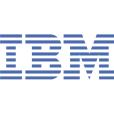 IBM (NYSE: IBM) today announced the successful delivery of an advanced speech-to-speech translation system to U.S. forces in Iraq. The bidirectional English to Arabic translation software is designed to improve communication between military personnel and Iraqi forces and citizens.
IBM (NYSE: IBM) today announced the successful delivery of an advanced speech-to-speech translation system to U.S. forces in Iraq. The bidirectional English to Arabic translation software is designed to improve communication between military personnel and Iraqi forces and citizens. The United States Joint Forces Command (USJFCOM) is embracing automated speech-to-speech translation techniques to help offset the current short supply of military linguists. Developed by IBM Research, supplied and supported by IBM's Technology Collaboration Solutions group, the Multilingual Automatic Speech-to-Speech Translator software -- dubbed "MASTOR" -- will initially be deployed on 35 ruggedized laptops to various Department of Defense components including the Army Medical Department, U.S. Special Operations Command and the Marines.
These military units will use MASTOR to facilitate military and medical-oriented conversations with members of the Iraqi security forces, in hospital settings and during daily interactions with Iraqi citizens. In addition, some of the devices will be used in the U.S. to help train military personnel in advance of deployments.
"Our goal is to enable units operating in areas where human interpreters are scarce to communicate effectively with speakers of different languages in real-world tactical situations," said Wayne Richards, Branch Chief, U.S. Joint Forces Capabilities Division. "The feedback gained in the field is crucial to enhance the translation system requirements and performance expectations."
"The advances IBM has made in research and development of speech-to-speech translation systems have the potential to revolutionize the way people around the world communicate with one another," said Anne Altman, Managing Director, IBM U.S. Federal. "The military's use of the MASTOR system is a very exciting example of that capability -- one where we see the potential to improve the safety of U.S. service personnel and save lives."
Currently, commercially available translation systems can only work with pre-programmed fixed phrases. MASTOR offers users the ability to have a free-form conversation without having to memorize any pre-determined phrases.
The goal of MASTOR is to convey the meaning of what is said, even if minor errors are made by the speaker or speech recognizer. During operation, the user speaks into a microphone that is interfaced with MASTOR. The technology recognizes and translates the speech, then vocalizes the translation in the target language for the foreign language speaker to hear. The foreign language speaker can then speak into the microphone in their own language, and MASTOR translates and vocalizes their speech back to the original language. In addition to the audible translation, MASTOR captures the spoken dialogue as text. MASTOR has been tested to run on a variety of platforms, including PDA, tablet PC and laptop computers.
IBM's technology is part of the Defense Advanced Research Projects Agency's (DARPA's) Spoken Language Communication and Translation System for Tactical Use (TRANSTAC) program, where MASTOR was one of the Speech to Speech systems selected for investigative equipping in support of the Multinational Force Security Transition Command-Iraq (MNSTC-I).
USJFCOM currently oversees the investigative equipping of speech to speech systems that enable rapid, two-way, natural language speech translation capabilities to protect and support the warfighter. The intent of the investigative equipping is to capture user feedback and use the operational test results to provide valuable input on automated translation system requirements and performance expectations. This includes training users, developing tactics, techniques and procedures, and joint concepts of operations, and collecting data that can be leveraged by future research programs.
Development of MASTOR began in 2001 in IBM's T.J. Watson Research Center where scientists worked closely with IBM engineers, manufacturing and military experts. The research scientists combined cutting-edge technologies in the areas of automatic speech recognition, natural language understanding and speech synthesis. The development of this state of the art system required innovations in the tight coupling of speech recognition and understanding to effectively mitigate the impact of speech recognition errors and non-grammatical inputs common in conversational speech.
MASTOR is available in two-way English to Iraqi Arabic, English to Modern Standard Arabic and English to Mandarin Chinese; additional languages are planned. The solution can recognize and translate a vocabulary of over 50,000 words in English and 100,000 in Iraqi Arabic. IBM intends to explore public and private sector market opportunities where language translation technologies are in high demand, including aerospace and defense, medical facilities, law enforcement, banking, travel, and government customer service settings on the state, local, and federal levels.




No comments:
Post a Comment